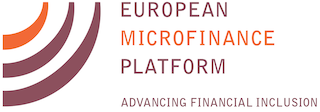 During a plenary session on financial inclusion for women at European Microfinance Week 2022, the presenters highlighted the need to collect and use good data. Not only must financial services providers (FSPs) disaggregate data by gender, but they must segment it further, as not all women have the same needs. Mary Ellen Iskenderian of Women’s World Banking cited the example of regulators in Chile realizing their data pointed to a need for housing loans, which the entity then successfully encouraged FSPs to develop.
During a plenary session on financial inclusion for women at European Microfinance Week 2022, the presenters highlighted the need to collect and use good data. Not only must financial services providers (FSPs) disaggregate data by gender, but they must segment it further, as not all women have the same needs. Mary Ellen Iskenderian of Women’s World Banking cited the example of regulators in Chile realizing their data pointed to a need for housing loans, which the entity then successfully encouraged FSPs to develop.
Carine Roenen of Fonkoze Foundation spoke to the importance of rich data – not just numbers but qualitative data as well. Fonkoze has had success encouraging line staff to report important client experiences to supervisors. For example, when thieves started targeting clients near branches, Fonkoze shifted more service provision to occur via agents. Katharine Pulvermacher of the Microinsurance Network cited an insurer in Ecuador that found it had so many clients needing to escape domestic violence that it opened an office staffed only by women that offers help with finding housing and work.
The panelists agreed that safety is a prerequisite to other forms of progress that can accompany financial inclusion. These include increases in self-esteem, household decision-making, ability to plan for the future, and even voting and running for political office.
Another recurring theme at the plenary was the strength of the business case for serving women. Ms Pulvermacher cited an estimate that insuring women could generate USD 2 trillion in annual premiums by 2029. To engage more FSPs in serving women, Evaline Angole of Grameen Foundation Ghana cited the formation and digitization of savings groups of women who have fled South Sudan as a way to show local FSPs they are creditworthy. To reach more rural women in a cost-effective manner, Ms Angole suggested engaging local NGOs. Meanwhile, some FSPs are tailoring products to women and forcibly displaced persons, making it easier to recruit members of these groups.
Ms Pulvermacher suggested FSPs consider expanding the hours that branches are open, as women often suffer “time poverty.” Some FSPs are offering child care at branches to make it easier for women to attend appointments. More simply, just letting women know that their children are welcome to accompany them to appointments can make them feel more empowered to use financial services.
Ms Roenen noted that FSP staff sometimes present barriers to engaging women. In one instance, a male supervisor warned a job applicant that getting pregnant would keep her from working as a loan officer because of the frequent motorcycle trips.
Women’s World Banking was working with an FSP in Pakistan that was rolling out a digital product that it hoped would serve men and women equally, but uptake was low among women at first. Further investigation found that women were uncomfortable giving their phone numbers to male agents to register for accounts. To address this problem, the FSP partnered with Unilever, which had a network of female sales agents in place. Within months of these agents offering the FSP’s digital finance product, the percentage of women using the product grew from 12 percent to 42 percent.
Making institutional change is difficult and slow. Ms Roenen cited the need to work on many levels at once: repeatedly talking at meetings about engaging women, hiring more women at all levels of the organization and changing policies as needed. Barbara Magnoni of EA Consultants pointed out that there will always be those who resist change, so the key is not to win over everyone, but just enough people to generate momentum. For some, it is easier to support the idea of equity in general – including equity in terms of race and disability, for example – rather than only gender equity.
Echoing the instance of supervisors discouraging women from applying to work at an FSP, Ms Magnoni emphasized that pushing policy down from above does not work. Instead one must build inclusivity at all levels of the organization – line staff, supervisors, middle managers, staff leadership and board members.
This feature is part of a sponsored series on European Microfinance Week, which took place in Luxembourg and online from November 16 through November 18. MicroCapital has been engaged to report on the conference each year since 2012.
Additional Resources
Financial Inclusion that Works for Women: Lessons and best practices from the European Microfinance Award 2022
https://www.e-mfp.eu/resources/financial-inclusion-works-women-lessons-and-best-practices-european-microfinance-award
European Microfinance Week 2022
https://emw2022.eu
European Microfinance Award
https://www.european-microfinance-award.com
MicroCapital coverage of European Microfinance Week since 2012, including the European Microfinance Award
https://www.microcapital.org/category/european-microfinance-week/
Similar Posts:
- SPECIAL REPORT: Increasing Financial Access for Women with Better Data, Mentoring, Staff Training, “Gender-smart” Audits
- SPECIAL REPORT: European Microfinance Week 2023 Opens With Action Group Meetings, Including Investors Sharing Strategies for Measuring Social Performance #EMW2023
- SPECIAL REPORT: e-MFP Green Inclusive and Climate Smart Finance Action Group Focuses on Capacity Building
- SPECIAL REPORT: Financial Inclusion of Forcibly Displaced Persons (FDPs), Host Communities Results in Competitive PAR Ratios #EMW2023
- SPECIAL REPORT: Small Business Diaries Benefit Entrepreneurs, Microfinance Institutions #EMW2023
